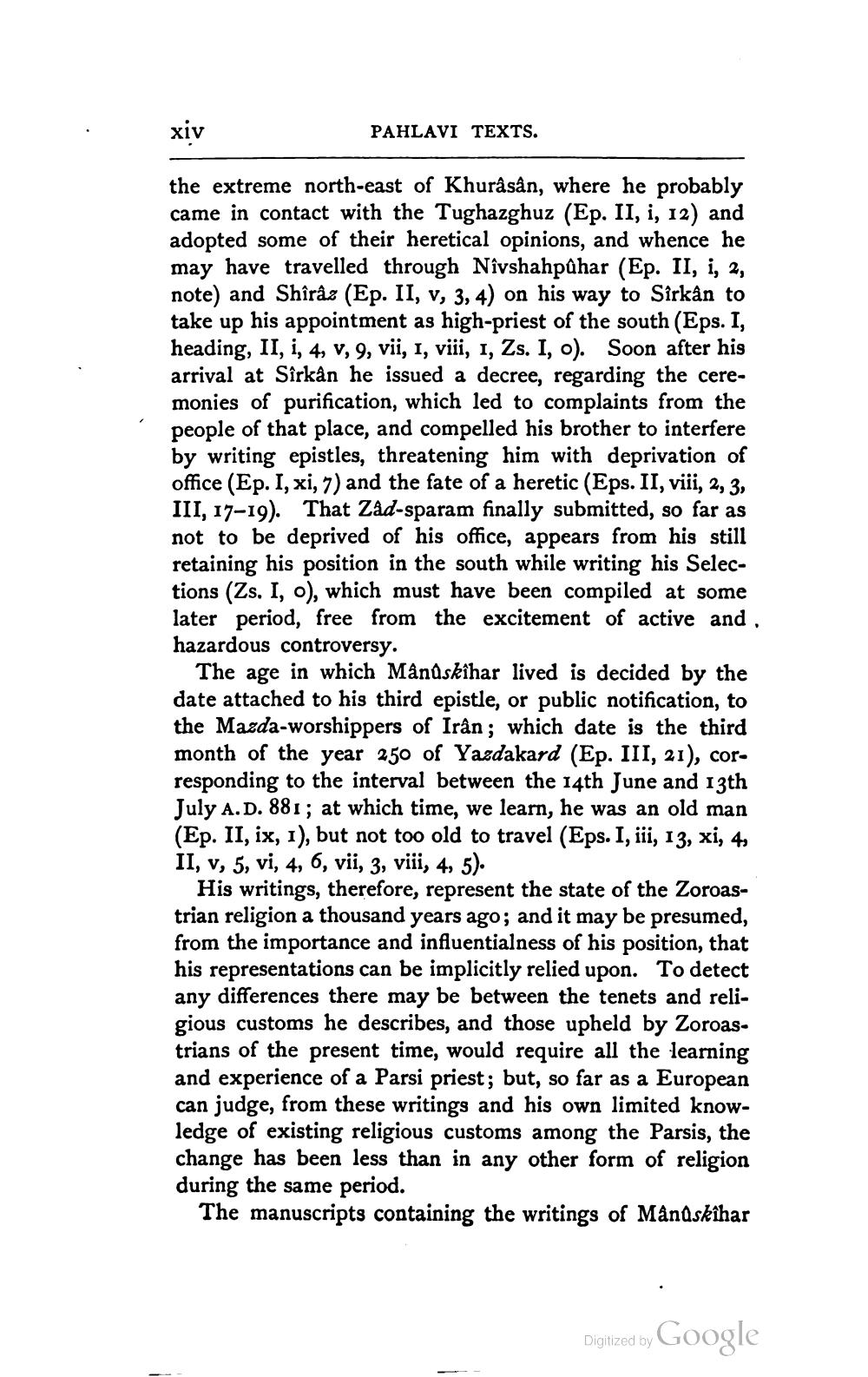________________
xiv
PAHLAVI TEXTS.
the extreme north-east of Khurâsân, where he probably came in contact with the Tughazghuz (Ep. II, i, 12) and adopted some of their heretical opinions, and whence he may have travelled through Nîvshahpuhar (Ep. II, i, 2, note) and Shîrâz (Ep. II, v, 3, 4) on his way to Sîrkân to take up his appointment as high-priest of the south (Eps. I, heading, II, 1, 4, V, 9, vii, 1, viii, 1, Zs. I, o). Soon after his arrival at Sîrkan he issued a decree, regarding the ceremonies of purification, which led to complaints from the people of that place, and compelled his brother to interfere by writing epistles, threatening him with deprivation of office (Ep. 1, xi, 7) and the fate of a heretic (Eps. II, viii, 2, 3, III, 17–19). That Zad-sparam finally submitted, so far as not to be deprived of his office, appears from his still retaining his position in the south while writing his Selections (Zs. I, o), which must have been compiled at some later period, free from the excitement of active and, hazardous controversy.
The age in which Mânûskîhar lived is decided by the date attached to his third epistle, or public notification, to the Mazda-worshippers of Irân; which date is the third month of the year 250 of Yazdakard (Ep. III, 21), corresponding to the interval between the 14th June and 13th July A.D. 881; at which time, we learn, he was an old man (Ep. II, ix, 1), but not too old to travel (Eps. I, iii, 13, xi, 4, II, v, 5, vi, 4, 6, vii, 3, viii, 4, 5).
His writings, therefore, represent the state of the Zoroastrian religion a thousand years ago; and it may be presumed, from the importance and influentialness of his position, that his representations can be implicitly relied upon. To detect any differences there may be between the tenets and religious customs he describes, and those upheld by Zoroastrians of the present time, would require all the learning and experience of a Parsi priest; but, so far as a European can judge, from these writings and his own limited knowledge of existing religious customs among the Parsis, the change has been less than in any other form of religion during the same period.
The manuscripts containing the writings of Mandskihar
Digitized by Google




